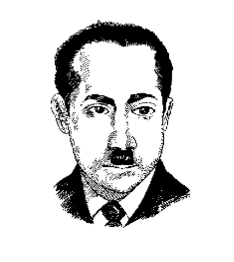With the global rise of political Islamism, many pundits have recently begun paying closer attention to the writings of Egyptian scholar and Muslim Brotherhood publicist Sayyid Qutb (1906-1966), whose radical Milestones and thirty-volume In the Shade of the Koran are said to be masterpieces of jihadist thought and persuasion. These writings, which some analysts consider to be an ideological influence on violent Islamist movements such as al-Qaeda, contain an uncompromising anti-Western slant that Qutb supports with observations from his travel experiences in the United States.
In these classic jihadist works, Qutb is never all that specific about how and where he went about assembling his presumed expertise on American culture, but biographers note that he spent a majority of his 1948–50 U.S. sojourn as a scholarship student at Colorado State College of Education, in the high-plains town of Greeley. Moreover, not long after his return to Egypt from the United States, Qutb attempted to sum up his expatriate experience in “The America I Have Seen,” a short travel memoir that appeared in the November 1951 issue of Egypt’s Al-Risala magazine.
As travel reportage, “The America I Have Seen” doesn’t exactly provide the reader with a vicarious window into living in the United States. Structured as a series of short, thematic arguments, Qutb’s essay primarily attempts to prove that America—despite its great wealth and scientific genius—suffers from a corrosive moral and spiritual primitiveness. This thesis might have carried some rhetorical weight had Qutb backed it up with evidence from his own experiences, but—oddly—the Egyptian traveler didn’t have many direct encounters worth sharing. Of the fifty-four brief sections in “The America I Have Seen,” only eight allude to specific real-life observations; the other sections consist of broad generalizations and secondhand anecdotes. Perhaps his most memorable direct recollection is described as follows:
In summary, anything that requires a touch of elegance is not for the American, even haircuts! For there was not one instance in which I had a haircut when I did not return home to even with my own hands what the barber had wrought, and fix what the barber had ruined with his awful taste.
Qutb’s exasperation with American barbers humanizes him in an unexpected way: In spite of his relentless didacticism, we realize that our skeptical Egyptian exchange student was really just a querulous sojourner in an unfamiliar land, compulsively judging everything he saw through the rosy, idealized lens of his home culture.
Indeed, biographers have implied that Qutb’s experience in the United States is what convinced him to reject Western values, but “The America I Have Seen” is clearly the memoir of a man who traveled to America seeking evidence for conclusions...
You have reached your article limit
Sign up for a digital subscription and continue reading all new issues, plus our entire archives, for just $1.50/month.
Already a subscriber? Sign in





